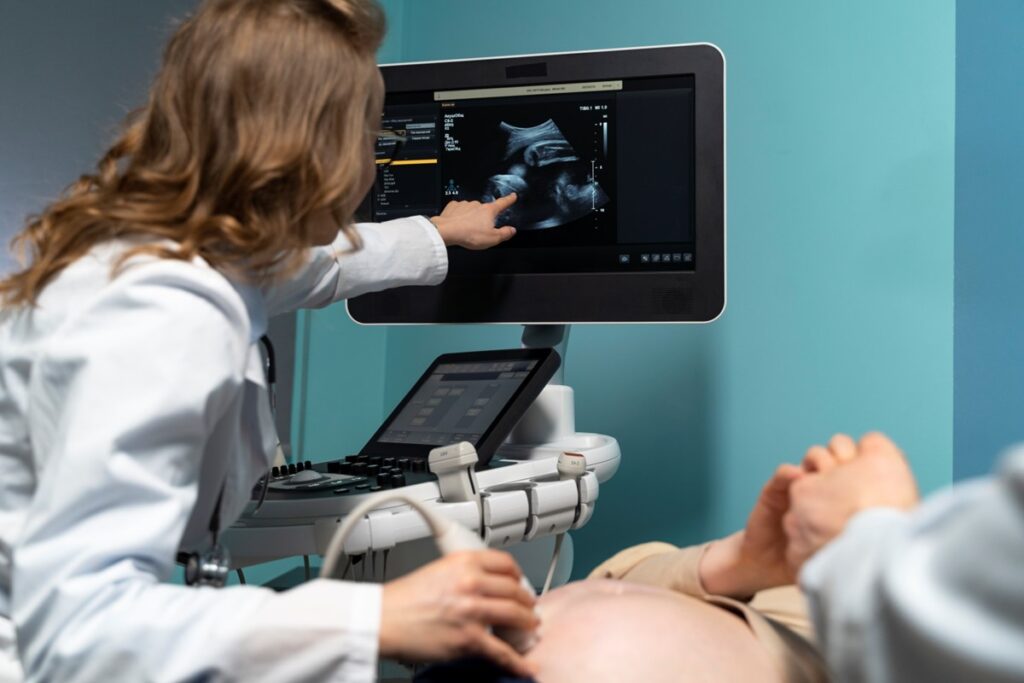Ectopic Pregnancy

An ectopic pregnancy occurs when a fertilized egg implants and begins to grow outside the uterus, typically in one of the fallopian tubes. This condition is also known as a tubal pregnancy and is considered a medical emergency as it can lead to life-threatening complications if not treated promptly.
Ectopic pregnancies occur due to various factors, including abnormalities of the fallopian tubes, scarring from previous surgeries or infections, or conditions that affect the movement of the fertilized egg through the fallopian tubes. Risk factors for ectopic pregnancy include a history of pelvic inflammatory disease (PID), previous ectopic pregnancy, or previous tubal surgery.
Symptoms of ectopic pregnancy may include abdominal or pelvic pain, vaginal bleeding or spotting, shoulder pain, dizziness or fainting, and rectal pressure. However, some women may not experience any symptoms initially, making diagnosis challenging.
Diagnosis of ectopic pregnancy typically involves a combination of medical history, physical examination, and diagnostic tests such as blood tests to measure pregnancy hormone levels and ultrasound imaging to visualize the location of the pregnancy. In some cases, laparoscopic surgery may be necessary to confirm the diagnosis and remove the ectopic pregnancy.
Treatment options for ectopic pregnancy depend on the location and size of the pregnancy, as well as the woman’s overall health and desire for future fertility. Options may include medication to dissolve the pregnancy tissue (methotrexate), or surgical intervention to remove the ectopic pregnancy and repair any damage to the fallopian tubes.
It’s important for women who suspect they may have an ectopic pregnancy to seek medical attention immediately, as untreated ectopic pregnancies can lead to rupture of the fallopian tube, severe internal bleeding, and shock.
